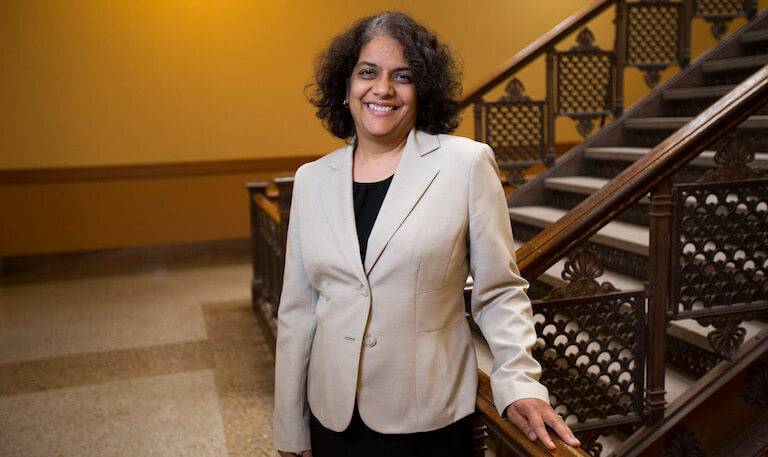Iowa State’s Mallapragada Named to Key DOE Advisory Committee
Posted Apr 28, 2023

On April 21, 2023, Iowa State University Associate Vice President for Research, Surya Mallapragada, was sworn in as a member of the Department of Energy’s (DOE) Basic Energy Sciences Advisory Committee (BESAC) for a term that runs through December 31, 2025.
The committee, established in 1986, provides advice and recommendations on scientific, technical and programmatic issues relating to the Basic Energy Sciences (BES) Program. BES supports basic scientific research to lay the foundations for new energy technologies and to advance DOE missions in energy, environment, and national security. BES research emphasizes discovery, design, and understanding of new materials and new chemical, biochemical, and geological processes, with the ultimate goal of better understanding the physical world and harnessing nature to benefit people and society.
“Major technological innovations don’t just happen. They typically evolve from basic research breakthroughs over a period of decades,” said Asmeret Asefaw Berhe, Director, DOE Office of Science. “The BES program supports research behind a broad range of energy technologies and BESAC plays an important role in guiding the Office of Science to make sure we are reaching our goals and listening to the community.”
As a committee member, Mallapragada will play an important role in advising the Department on the national basic energy sciences program, focusing particularly on the fields of condensed matter and materials physics.
Mallapragada, who has been an Iowa State faculty member since 1996, is uniquely qualified to serve on this committee. In addition to her AVP role, she is an Anston Marston Distinguished Professor. She previously served as Carol Vohs Johnson Chair of the Department of Chemical and Biological Engineering at Iowa State from 2009 through 2013. Mallapragada also served as Program Director of Materials Chemistry and Biomolecular Materials from 2004 through 2008 at Ames National Laboratory, a DOE Laboratory located in Ames, Iowa, and currently leads an interdisciplinary research project at the Laboratory on bioinspired materials.
“The Office of Science is one of the nation’s largest sponsors of research in the physical sciences, providing funding for basic science discovery at nearly 170 universities, national laboratories and other research institutions throughout the U.S. The combination of Dr. Mallapragada’s expertise in chemical and materials sciences and nano technologies – together with senior-level university research administration experience – make her an outstanding choice to serve on the Basic Energy Sciences Advisory Committee,” said Iowa State University Vice President for Research, Peter Dorhout.
“Dr. Mallapragada’s appointment to BESAC is also a recognition of the institutional knowledge and expertise that Iowa State University possesses in the chemical sciences, engineering, material sciences, biosciences, nanoscience, and other disciplines that are critical for driving innovations in energy,” Dorhout continues. “We’re delighted that DOE recognizes and values the insight and vision Dr. Mallapragada will bring to the committee based on the leadership she has consistently demonstrated in her many roles in her nearly 30 years at Iowa State.”
“Dr. Mallapragada’s longstanding experience in both leadership and research roles at Ames National Laboratory give her an insider’s view to the opportunities and challenges that exist for scientists working to meet the Department of Energy mission,” said Ames National Laboratory Director Adam Schwartz. “We’re enormously pleased to have her expertise as part of the BESAC.”
Mallapragada is equally excited to serve on the committee. “Iowa State is driven by an aspiration to create opportunities and forge new frontiers,” she said. “Throughout my career, I’ve had the good fortune to work within and across a range of interests and disciplines, and with a variety of collaborators in both the public and private sectors. I believe these wide-ranging experiences will be beneficial as I work closely with my fellow committee members in advising the Department on basic science research that will create opportunities and forge new frontiers in the critical energy sector.”
